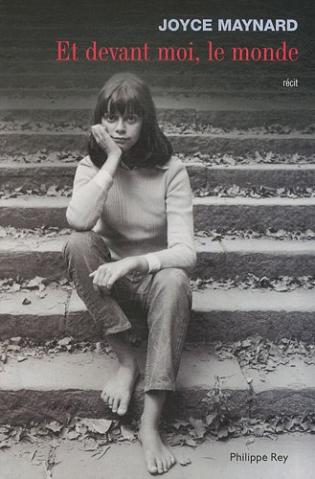
What's worse, he does his best to turn the hugely driven young woman into a mistrusting, publicity-shy prig, not to mention helping her perfect her already anorexic bent. Maynard is such a skilled writer that it's hard not to take her side as the relationship falters. In fact, even when it's going well, it's not easy to sympathize with a man whose idea of an endearment is, "I couldn't have made up a character of a girl I'd love better than you." But Maynard is as hard on her younger self as she is on the great man. Though she had published intimate essays since her early teens, and long been feted for her "honesty," it has taken the overachiever many years to realize that she had carefully left out her most personal burdens--her father's alcoholism, her mother's nighttime "snuggling" and overwhelming intrusions, the distance between her and her older sister.
Still, At Home in the World is more than a clearing-house for past parental and amorous wrongs. It's a cautionary tale about using language and the pretense of truth to obscure key realities. One of the many curiosities in this discomfiting book? Salinger dreamt that he and Maynard had a child together: "I saw her face clearly. Her name was Bint." The World War II veteran then looks up the word. "What do you know," he says. "It's archaic British, for little girl." Maynard never, even now, has questioned his definition. In fact, it's slang, used especially in World War II, for prostitute. When Salinger forced the 19-year-old to clear her things out of his New Hampshire house, she was still unaware of the word's force. "On the window of Jerry's bedroom, where the glass is dusty, I write, with my finger, the name of the child we had talked about: BINT." --Kerry Fried